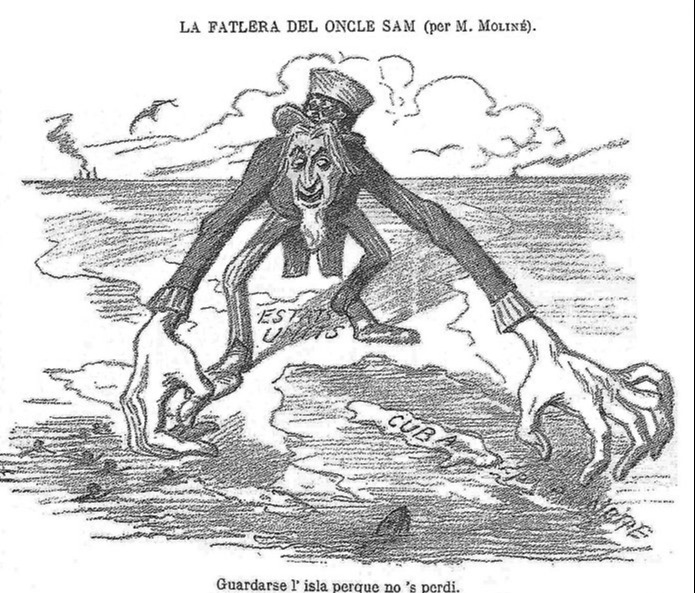
Illustrative image taken from Cubasí.
By María Josefina Arce
Every people has the right to choose its own path and work for its development and well-being. Any external attempt to halt that progress and seek regime change is an interference in their internal affairs, an aggression against their sovereignty, a violation of international norms and a threat to peace.
Cuba has been in the sights of the United States since as early as the nineteenth century, when, using as a pretext the blowing up of the battleship Maine in Havana Bay in February 1898, the neighbor to the North declared war on Spain and intervened in the Spanish-Cuban conflict.
The nascent American imperialism was hiding its true purpose of preventing the near victory of the Cubans in their struggle for independence from the Spanish metropolis.
Before that moment, its appetite for Cuba had already gone through several attempts to buy Spain, annexationist pressures and the lack of recognition of the just struggle of the Cuban independence fighters.
After its defeat, Spain abandoned its claims over Cuba, which would then become a neo-colony of the United States. The triumph of the Revolution, in January 1959, put an end to that condition, during which the governments of the time handed over the country to U.S. companies, while poverty, unhealthiness and illiteracy rates were high among the people.
From the beginning, the revolutionary process was subjected to a brutal campaign of harassment, hatred and discredit that has lasted for decades, and has been accompanied by a genocidal economic, commercial and financial blockade.
An undeclared war that has intensified in recent months, even in the midst of a pandemic, and which seeks to falsify the reality of Cuba to provoke a social explosion, as denounced by Foreign Minister Bruno Rodriguez, in an intervention before the diplomatic corps accredited in Havana.

The head of Cuban diplomacy showed elements that prove how this operation is organized from U.S. territory, with the intervention of important government officials, the State Department, other agencies and senators and congressmen with a well-known anti-Cuban stance.
In this regard, he said that since September 22, a total of 29 declarations have been made by the U.S. government and influential congressional figures, with the aim of instigating actions against the constitutional order on Cuban soil.
The authorities have denounced that violent groups with past and present terrorist actions against our country are also involved in these destabilizing plans.
But Cuba, although besieged, continues to work for the well-being of its citizens, as confirmed by the successful vaccination campaign against HIV/AIDS, the transformations that the communities are undergoing today and the measures adopted to reactivate the economy after almost two years of pandemic and the tightening of the blockade.
Washington's policy against our country is, as Foreign Minister Bruno Rodriguez described it, dysfunctional, ineffective and costly for the U.S. taxpayer.

